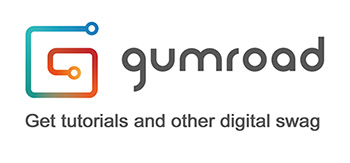 |
| Hatsune Miku Pinup Style - pose inspired by George Petty - Jan. 2015 by Oliver Wetter |
Anyone who knows a bit about me or this blog knows that I have a pet issue on popular culture and personalities, so the question that I came up with was similar to the headline: "Is personality overrated?
Where personality Does Matter :
#1: In brands and corporations:
The first thing that came to mind as a valid example was the closing of video-rental stores in the late nineties. Brands like Netflix changed that market by introducing DVD-by-mail subscription based services in 1999. Today video-on-demand is changing the market once again, with growing numbers of titles and accessibility on a global scale.
The main thing to note is that rental store owners in the 90ies probably thought that personality, (your friendly clerk behind the counter) brand awareness and stuff like that could keep consumers - but in the end personality of brands like Netflix and Amazon were much stronger.
The same could be said about the book market. Not the ebook-reader, apple or kindle changed the market, but the laziness and once more brand awareness.
Consumers perceive the brand on dimensions that typically capture a person´s personality, and extend that to the domain of brands. Rajagopal 2008
From a psychological perspective this change is frightening at first. On the other hand it provokes questions about what personality really is.
- The combination of characteristics or qualities that form an individual's distinctive character.
- A celebrity or famous person.
Interestingly the first two things to appear on Wikipedia show either distinctive characteristics or lead to the general perception that this noun is bound to - a celebrity.
The point I am trying to make is that personality, in other words, distinctive characteristics are going to be used more and more on brands and that the general public, the mass of consumers IOW we, accept this change by purchasing more and more online and contribute to the decline of personal interactions.
#2: Environments that nurture intrinsic nature or value:
#2: Environments that nurture intrinsic nature or value:
Another interesting observation is that personality is a fascinating thing when applied to musicians and actors. When it comes to music, why were legends such as Elvis, Michael Jackson, Jimi Hendrix and Freddie Mercury so attractive? I don´t think their hairstyle or clothes was the reason why many thousands of fans filled concert halls, Kurt Cobain tried it with the total opposite of glamour clothing and he was attrictive too for many. So what is it?
What is the most attractive aspect of a personality?
I believe the most attractive aspect of any personality is the ability to create momentum and to be a great vessel for energy, to give back what you are able to receive from your audience.
These abilities are interdependent and scalable.
The most intricate example of how even a fictional personality can capture a mass audience is by viewing the success of Hatsune Miku. A vocaloid and a real time animated character, projected on stage:
Another interesting fact is that even though some parts of an image are missing, such as a face (Banksy) or actual recognizable persons that are replaced by exchangeable masks and clothes (Blue Man Group), our minds are still able to create a picture of a personality. That is the reason why our brains are able to create a feeling for a non-existing character; it loves to connect dots and from a scientific POV it is probably the level of serotonin involved that is distributed in our bodies when we enjoy to come up with our own interpretations as part of a story. Btw. this is the explanation why we humans love to read fictional books or even to make up things in the first place.
This is what I love the most when doing personal works, homages, tributes or fan art, to play with existing images of made-up personalities. The play with an existing image is connected with a lot responsibility but also fun.
This is a very bold way of viewing things and probably one very overlooked aspect of creators of visual works of art, but seing it that way means understanding why Donald Duck or Mickey Mouse represents Walt Disney the best and why the surrealist works of Salvador Dalí show exactly the extravagant genius personality Dalí actually was.
Where it does not matter
There are environments where extrinsic parameters are of more value than intrinsic and in such environments a unique personality is a distraction. Such environments are any work that bears employment, be it working on the frontline or in a laboratory. In the latter your work is probably more meaningful, but personality is not required - same goes for managers or brokers or agencies of any kind. What counts are numbers, if these numbers are met by employing people without personality, why bother getting people with annoying habits and ideas anyways?Freelancing is in the gray here; theoretically you think it should be possible to bind clients to you by having a great personality and by being good "to get along with", but reality is that a client has something he wants to have done and if you are not capable to do that, there are others.
Personality aka intrinsic qualities can get in your way here.
If you think companies hire you because you are such an amazing personality, think twice.
Personality is all about showcasing how we want to be perceived versus how we actually are. If we are true to our authentic nature (or develop into the person we want to be) it is very likely that we will be accepted this way.
Conclusion
There are basically 2 ways how personality will be used in the future and you can decide on which side you want to stand: There are either companies and corporations who are hungry and eat up everything they can put their hands on - which includes intellectual property as well.
Opposed to that there is room for intrinsic nature to develop a very own following. People who are driven by intrinsic value gather people around them, no matter what they do. In turn; Corporations have no interest in intrinsic value - but want to reap benefits if you are succesful.
Corporations can make artists rich and actually they can´t live without the creative minds out there, but artists can live without corporations.
That is a choice!
Think about that power.


















Considering freelancing I always think that personality can get you a job, but in order to keep it you have to step up and show that you are capable of finishing it.
ReplyDeleteThat much is true. I tend to believe that it is your portfolio that get´s you a job in freelancing. If you are easy to get along with - that is a plus definitely.
Delete